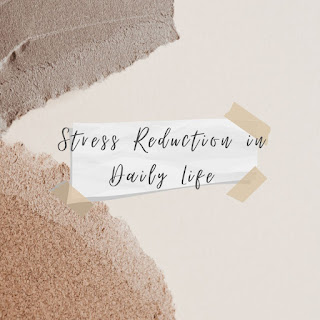Recognizing Burnout
Burnout is a state of emotional, physical, and mental exhaustion caused by excessive and prolonged stress. It can lead to a variety of problems, including fatigue, irritability, difficulty concentrating, and changes in sleep patterns. In severe cases, burnout can even lead to depression and anxiety.
Burnout is a serious problem that can affect anyone, but it is particularly common among people who work in high-stress jobs, such as healthcare professionals, teachers, and first responders. If you're feeling burned out, it's important to take steps to address the problem before it gets worse.
What are the signs of burnout?
The symptoms of burnout can vary from person to person, but some common signs include:
* Feeling exhausted, both physically and mentally
* Having difficulty concentrating or making decisions
* Feeling irritable or angry
* Having difficulty sleeping
* Loss of interest in activities you once enjoyed
* Changes in appetite or weight
* Pessimistic or negative thinking
* Increased use of alcohol or drugs
What causes burnout?
There are a number of factors that can contribute to burnout, including:
* Work-related stress: Burnout is often caused by excessive and prolonged stress at work. This can be due to a number of factors, such as high workload, unrealistic expectations, or a toxic work environment.
* Personal problems: Burnout can also be caused by personal problems, such as relationship problems, financial problems, or health problems.
* Lack of support: Burnout can be more likely to occur if you don't have a supportive social network or if you don't feel like your work is valued.
How to prevent burnout
There are a number of things you can do to prevent burnout, including:
* Set realistic expectations: One of the best ways to prevent burnout is to set realistic expectations for yourself. This means not taking on too much work and allowing yourself time for rest and relaxation.
* Take breaks: It's also important to take breaks throughout the day, even if it's just for a few minutes. Getting up and moving around, or taking some time to relax and clear your head, can help to reduce stress and prevent burnout.
* Delegate tasks: If you have too much work to do, don't be afraid to delegate tasks to others. This can help to lighten your load and free up some of your time.
* Say no: It's also important to know when to say no. If you're feeling overwhelmed, don't be afraid to turn down new projects or tasks.
* Take care of yourself: Make sure you're taking care of yourself physically and mentally. This means eating healthy, getting enough sleep, and exercising regularly. It also means taking time for relaxation and fun activities.
* Seek support: If you're feeling burned out, it's important to seek support from friends, family, or a therapist. Talking about your problems can help you to feel better and develop coping mechanisms.
How to deal with burnout
If you're already feeling burned out, there are a number of things you can do to deal with the problem, including:
* Take a break: The first step is to take a break from whatever is causing you stress. This could mean taking a few days off work, or simply cutting back on your commitments.
* Relax: It's also important to relax and de-stress. This could mean spending time in nature, exercising, or doing something you enjoy.
* Talk to someone: Talking about your problems can help you to feel better and develop coping mechanisms. Talk to a friend, family member, therapist, or other trusted individual.
* Make changes: If your job is causing you burnout, it may be time to make some changes. This could mean changing jobs, asking for a transfer, or negotiating for a more flexible work schedule.
Burnout is a serious problem, but it can be prevented and treated. By following these tips, you can reduce your risk of burnout and maintain a healthy work-life balance.

.jpg)
.jpg)

Comments
Post a Comment